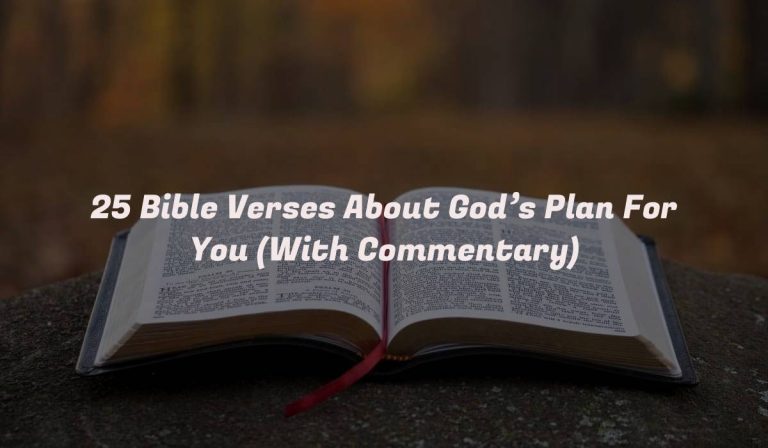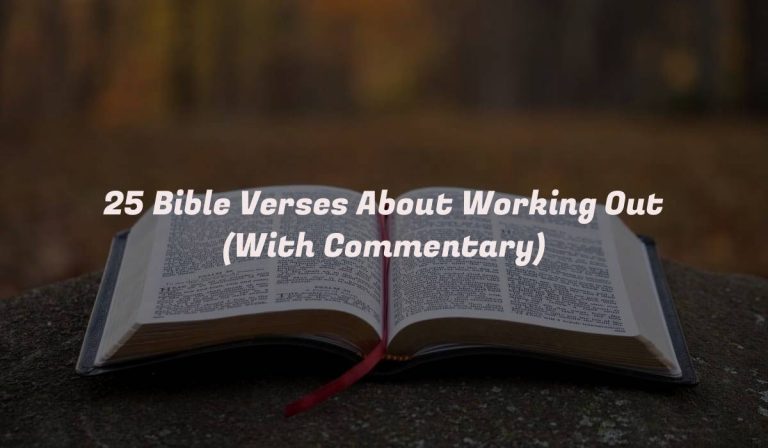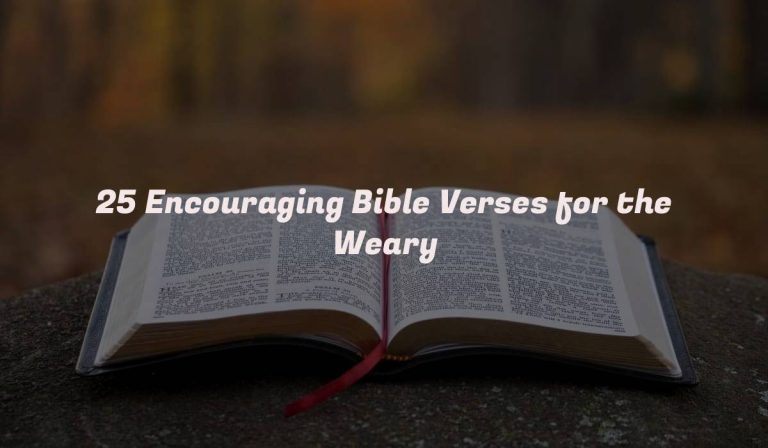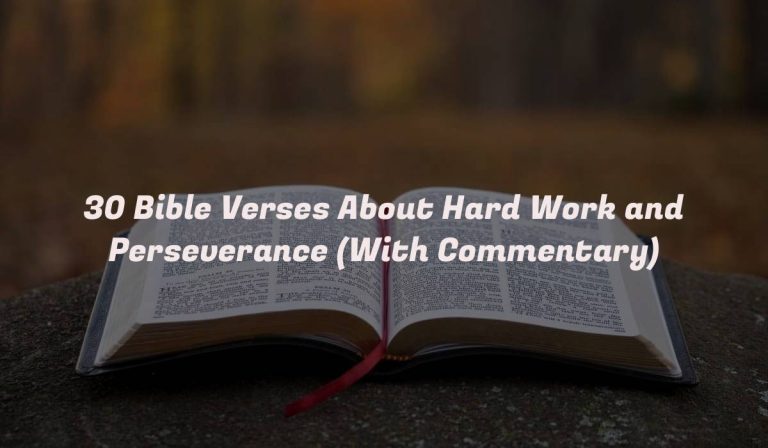25 Bible Verses About Plants And Flowers (With Commentary)
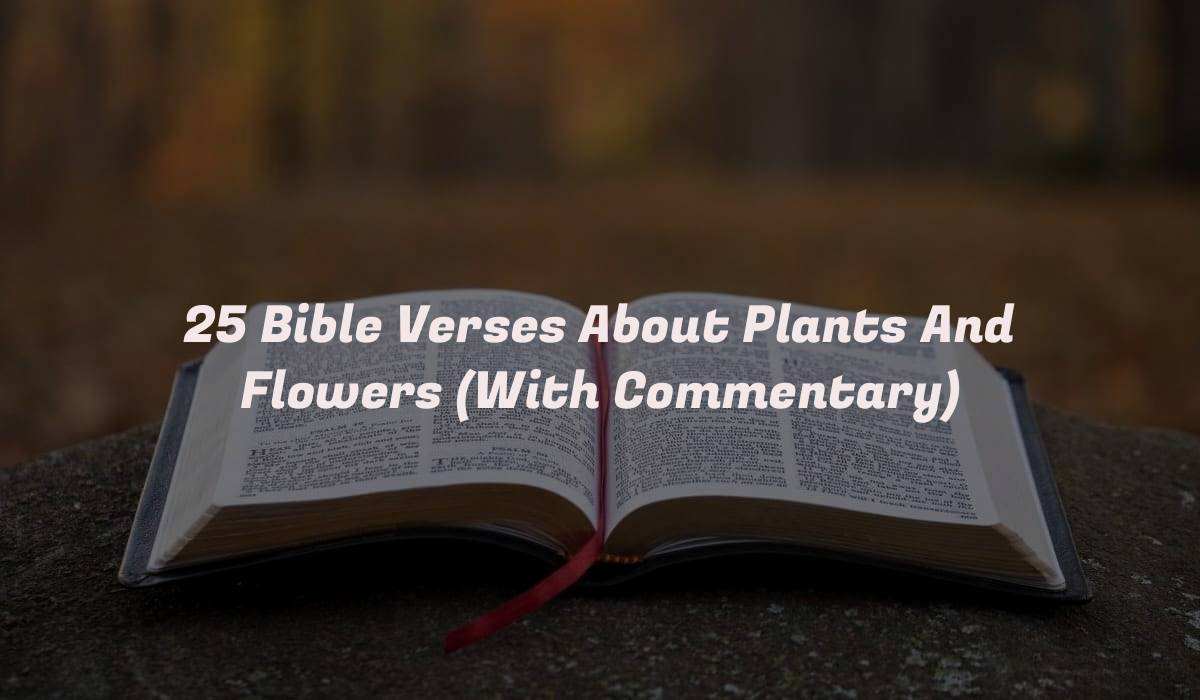
From the lilies of the field to the vine and branches, the Bible is filled with references to plants and flowers, each carrying profound spiritual lessons. Join us as we take a stroll through the garden of scripture, discovering the beauty and symbolism of these botanical treasures and uncovering the deeper meanings they hold for our lives.
Bible Verses About Plants And Flowers
Psalm 92:12
“The righteous will flourish like a palm tree, they will grow like a cedar of Lebanon.”
This verse compares the growth and flourishing of the righteous to that of a palm tree and a cedar of Lebanon. Just as these trees grow tall and strong, so will the righteous. It emphasizes the idea that when we are rooted in righteousness and faithfulness, we will thrive and bear fruit in all areas of our lives.
Isaiah 35:1-2
“The desert and the parched land will be glad; the wilderness will rejoice and blossom. Like the crocus, it will burst into bloom; it will rejoice greatly and shout for joy.”
This beautiful imagery describes the transformation that will occur in the barren and desolate places. Just as the crocus bursts into bloom, so will the wilderness rejoice and blossom. It symbolizes the restoration and blessings that God brings into our lives, even in the midst of hardship and dry seasons.
Matthew 6:28-29
“And why do you worry about clothes? See how the flowers of the field grow. They do not labor or spin. Yet I tell you that not even Solomon in all his splendor was dressed like one of these.”
Jesus uses the example of the flowers of the field to teach us about trust and reliance on God. Just as the flowers do not worry or strive, God takes care of them and provides for their needs. This verse encourages us to cast aside our worries and anxieties, knowing that God will provide for us in every aspect of our lives.
Psalm 103:15-16
“The life of mortals is like grass, they flourish like a flower of the field; the wind blows over it and it is gone, and its place remembers it no more.”
This verse reminds us of the fleeting nature of human life. Just as grass and flowers wither away, so will our lives eventually come to an end. It serves as a sobering reminder to make the most of our time on earth and to focus on the eternal rather than the temporary.
John 15:5
“I am the vine; you are the branches. If you remain in me and I in you, you will bear much fruit; apart from me you can do nothing.”
Jesus uses the analogy of the vine and branches to illustrate our dependence on Him. Just as a branch cannot bear fruit unless it remains connected to the vine, we cannot bear the fruits of a godly life unless we remain connected to Christ. This verse emphasizes the importance of abiding in Jesus and cultivating a close relationship with Him in order to bear fruit in our lives.
James 1:11
“For the sun rises with scorching heat and withers the plant; its blossom falls and its beauty is destroyed. In the same way, the rich will fade away even while they go about their business.”
This verse illustrates the fleeting nature of earthly riches and possessions. Just as the scorching heat withers a plant, the wealth and beauty of the rich will fade away. It serves as a reminder not to place our trust and identity in material wealth, but to focus on the eternal treasures that can only be found in a relationship with God.
Isaiah 40:8
“The grass withers and the flowers fall, but the word of our God endures forever.”
This verse emphasizes the enduring nature of God’s Word. While the grass withers and the flowers fade away, the truth and promises found in Scripture remain steadfast and unchanging. It serves as a reminder that we can trust in the eternal truths of God’s Word, even in the midst of a changing world.
Song of Solomon 2:12
“Flowers appear on the earth; the season of singing has come, the cooing of doves is heard in our land.”
This verse describes the beauty and joy that comes with the arrival of flowers and the changing of seasons. It paints a picture of a time of abundance and celebration, symbolizing the goodness and blessings that God brings into our lives. It reminds us to appreciate and give thanks for the seasons of joy and abundance that God brings our way.
Hosea 14:5
“I will be like the dew to Israel; he will blossom like a lily. Like a cedar of Lebanon he will send down his roots.”
In this verse, God promises to be like dew to Israel, bringing refreshment and nourishment. The imagery of the lily and the cedar of Lebanon symbolizes the growth and flourishing that will occur when we trust in God and rely on Him. It serves as a reminder of God’s faithfulness and His desire to bring growth and fruitfulness into our lives.
1 Peter 1:24-25
“For, ‘All people are like grass, and all their glory is like the flowers of the field; the grass withers and the flowers fall, but the word of the Lord endures forever.’” And this is the word that was preached to you.”
This verse reiterates the temporary nature of human life and earthly glory. Just as the grass withers and the flowers fall, our lives and achievements are fleeting. However, the word of the Lord endures forever. It reminds us of the eternal value and significance of God’s Word, which brings life, transformation, and salvation to all who believe.
Mark 4:20
“Others, like seed sown on good soil, hear the word, accept it, and produce a crop − some thirty, some sixty, some a hundred times what was sown.”
Jesus uses the analogy of the seed sown on good soil to illustrate the importance of receiving and accepting His Word. When we allow His Word to take root in our lives, it produces a bountiful harvest. This verse highlights the importance of having receptive hearts and minds, ready to receive the life-giving truths of God’s Word and bear fruit in our lives.
Psalm 1:3
“That person is like a tree planted by streams of water, which yields its fruit in season and whose leaf does not wither − whatever they do prospers.”
In this verse, the righteous are likened to trees planted by streams of water. Just as these trees are nourished and bear fruit, so will the righteous prosper and flourish in all they do. It emphasizes the importance of staying connected to the living water of God’s Word and His presence in order to receive the nourishment and strength needed to thrive.
Romans 8:19
“For the creation waits in eager expectation for the children of God to be revealed.”
This verse speaks of the anticipation and longing of creation for the manifestation of God’s children. It highlights the profound impact that the children of God can have on the world around them. It inspires us to live in a way that reflects our true identity as children of God and to bring His love, light, and redemption to a broken and hurting world.
Matthew 13:31-32
“He told them another parable: ‘The kingdom of heaven is like a mustard seed, which a man took and planted in his field. Though it is the smallest of all seeds, yet when it grows, it is the largest of garden plants and becomes a tree, so that the birds come and perch in its branches.’”
This parable illustrates the transformative power of the kingdom of heaven. Just as a small mustard seed grows into a large tree, the kingdom of heaven grows and expands in influence and impact. It reminds us that even the smallest acts of faith and obedience can have a significant and far-reaching effect, bringing God’s kingdom to earth and drawing others to Him.
Psalms 23:2
“He maketh me to lie down in green pastures: he leadeth me beside the still waters.”
This verse paints a beautiful picture of God’s provision and care for His people. Like a shepherd leading his sheep to green pastures and still waters, God guides and provides for us. It reminds us of His goodness and faithfulness, and His desire to lead us to places of rest, refreshment, and abundance.
Ezekiel 17:23
“On the mountain height of Israel will I plant it, that it may bear branches and produce fruit and become a noble cedar. And under it will dwell every kind of bird; in the shade of its branches birds of every sort will nest.”
This verse speaks of God’s promise to plant and cultivate a tree on the mountain height of Israel that will bear fruit and provide shelter for various birds. It symbolizes God’s redemptive work and His desire to establish a thriving and fruitful community rooted in Him. It reminds us of God’s heart for unity and diversity, and His desire to see His people flourish and be a blessing to others.
Genesis 1:11
“Then God said, ‘Let the land produce vegetation: seed-bearing plants and trees on the land that bear fruit with seed in it, according to their various kinds.’ And it was so.”
This verse describes God’s creation of plants and trees and His design for them to bear fruit. It highlights the intentionality and purpose behind God’s creation, with each plant and tree producing fruit according to its kind. It reminds us of God’s perfect design and His desire for us to bear fruit in our lives, reflecting His character and bringing glory to Him.
Jeremiah 17:8
“They will be like a tree planted by the water that sends out its roots by the stream. It does not fear when heat comes; its leaves are always green. It has no worries in a year of drought and never fails to bear fruit.”
In this verse, the righteous are compared to trees planted by the water, drawing nourishment and strength from the stream. It illustrates the resilience and steadfastness of those who trust in God. Even in challenging times, they remain fruitful and undeterred, trusting in God’s provision and faithfulness. It serves as an encouragement to stay rooted in God’s truth and to rely on His strength, regardless of the circumstances we may face.
Isaiah 61:3
“…to bestow on them a crown of beauty instead of ashes, the oil of joy instead of mourning, and a garment of praise instead of a spirit of despair. They will be called oaks of righteousness, a planting of the Lord for the display of his splendor.”
This verse speaks of God’s transformative work in the lives of His people. He takes our brokenness, mourning, and despair, and replaces them with beauty, joy, and praise. It describes the righteous as “oaks of righteousness,” planted by the Lord to display His splendor. It reminds us of God’s redemptive power and His ability to bring beauty out of ashes.
Isaiah 60:13
“The glory of Lebanon will come to you, the juniper, the fir, and the cypress together, to adorn my sanctuary; and I will glorify the place for my feet.”
This verse paints a picture of the grandeur and beauty that will adorn God’s sanctuary. The glory of Lebanon, represented by the juniper, fir, and cypress trees, will come together to adorn the place for God’s feet. It symbolizes the splendor and majesty of His presence and His desire to dwell among His people. It reminds us that God’s presence brings beauty, transformation, and worship.
Matthew 6:30
“If that is how God clothes the grass of the field, which is here today and tomorrow is thrown into the fire, will he not much more clothe you—you of little faith?”
Jesus uses the analogy of God’s care for the grass of the field to highlight His provision and care for His children. If God clothes the grass, which is temporary and fleeting, how much more will He provide for us, who are created in His image and have eternal value? It challenges us to trust in God’s provision and to have faith in His loving care for us.
Song of Solomon 2:2
“As a lily among thorns, so is my love among the daughters.”
In this verse, the love between the bride and the bridegroom is compared to a lily among thorns. The purity, beauty, and rarity of the lily stand out among the roughness and darkness of the thorns. It symbolizes the uniqueness and priceless nature of love. It reminds us of the beauty and significance of God’s love for us, and challenges us to love others with the same purity and selflessness.
What Does The Bible Say About Plants And Flowers?
When it comes to plants and flowers, the Bible has much to say! From the very beginning, we see in Genesis 1:11-12 that God created plants and vegetation on the third day of creation. He commanded the earth to bring forth plants, trees, and fruit with various kinds of seeds. It is clear from this verse that God designed and willed the existence of plants and flowers for a purpose.
Throughout the Bible, there are several references to plants and flowers that provide spiritual lessons and symbolism for us. One such example is found in Matthew 6:28-29, where Jesus talks about the lilies of the field. He uses them as an example to teach us about God’s provision and care for us. Just as God dresses the flowers in splendor, Jesus assures us that God will take care of our needs as well.
Plants and flowers also serve as symbols of growth, beauty, and life. In Psalm 92:12-15, the psalmist describes how the righteous will flourish like a palm tree and grow like a cedar of Lebanon. These references illustrate the concept of spiritual growth and flourishing in our relationship with God.
Furthermore, plants and flowers are often used metaphorically to describe spiritual concepts. In John 15:1-8, Jesus refers to Himself as the true vine while believers are described as branches. This analogy teaches us about the importance of remaining connected to Christ, just as branches are connected to the vine, in order to bear fruit and live a fruitful life.
In addition, we can learn from plants and flowers in terms of patience and endurance. The parable of the sower in Matthew 13:1-23 reveals the importance of having good soil, which represents a receptive heart that is willing to receive and grow the word of God. Just as plants require nurturing and time to grow, we are called to patiently cultivate our relationship with God and allow His truth to take root in our lives.
Lastly, plants and flowers can also remind us of the brevity of life. In Isaiah 40:6-8, the prophet compares people to grass that withers and fades away. This serves as a reminder that our lives on earth are temporary, but God’s Word endures forever. We are encouraged to seek a deeper connection with God and prioritize things of eternal value.
In conclusion, the Bible acknowledges and appreciates the beauty and significance of plants and flowers. From the creation story to various spiritual lessons and metaphors, the Bible encourages us to learn from the plant kingdom. By observing plants and flowers, we can gain insights into God’s provision, spiritual growth, endurance, and the brevity of life. Let us appreciate and cherish these gifts from God, allowing them to remind us of His love and care for us.

